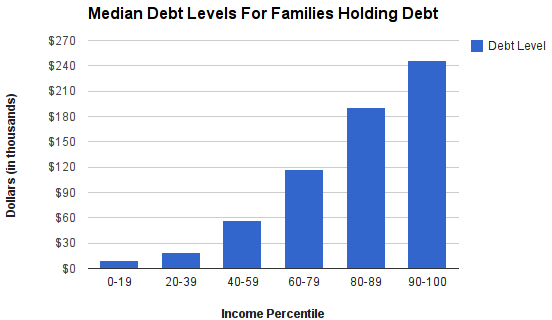A group calling itself Strike Debt has a new initiative called the Rolling Jubilee. The basic idea is to purchase distressed debt for pennies on the dollar — as collection agencies regularly do — and then cancel the debt. Through this strategy they estimate that they can cancel $20 of debt for every $1 that is donated. This has gotten a great deal of buzz from all sorts of press outlets and the usual suspects. For those interested, here is a short round up of the must-reads.
- Seth Ackerman and Andrew Ross debate the merits of the Rolling Jubilee at Dissent.
- Ida Ince covers some of the legal issues involved and iterates some of the relevant arguments.
- Matt Yglesias favors the idea, but unsurprisingly raises the point that cash transfers would be better.
- Doug Henwood, among other things, challenges the strategic wisdom of a campaign focused on debt.
As for me, I don’t have much to add. It’s a neat idea and getting a great deal of attention. It illustrates a level of creativity and competence that many doubt those associated with Occupy have. That’s all good, and so I think it’s a good initiative for those reasons. Along with Henwood, I am not that excited about debt as the focal point. As the 2010 Survey of Consumer Finances reveals, the poorest 20 percent of households are the most likely to have no debt at all, and debt levels track income percentiles.

Those on the lower end of things — even though they are the least likely to be holding any debt — certainly get trapped in it and have to rely on things like credit cards because of the grossly unequal distribution of income in society. But this broad distributive point — the point I tend to think is the most important — may not come across in this action that is so narrowly focused on debt. If the movement is one against the institution of debt itself as a social relation, this ends up being much less of a class issue than the organizers suggest. That is, all classes carry debt, and the rich carry the most.